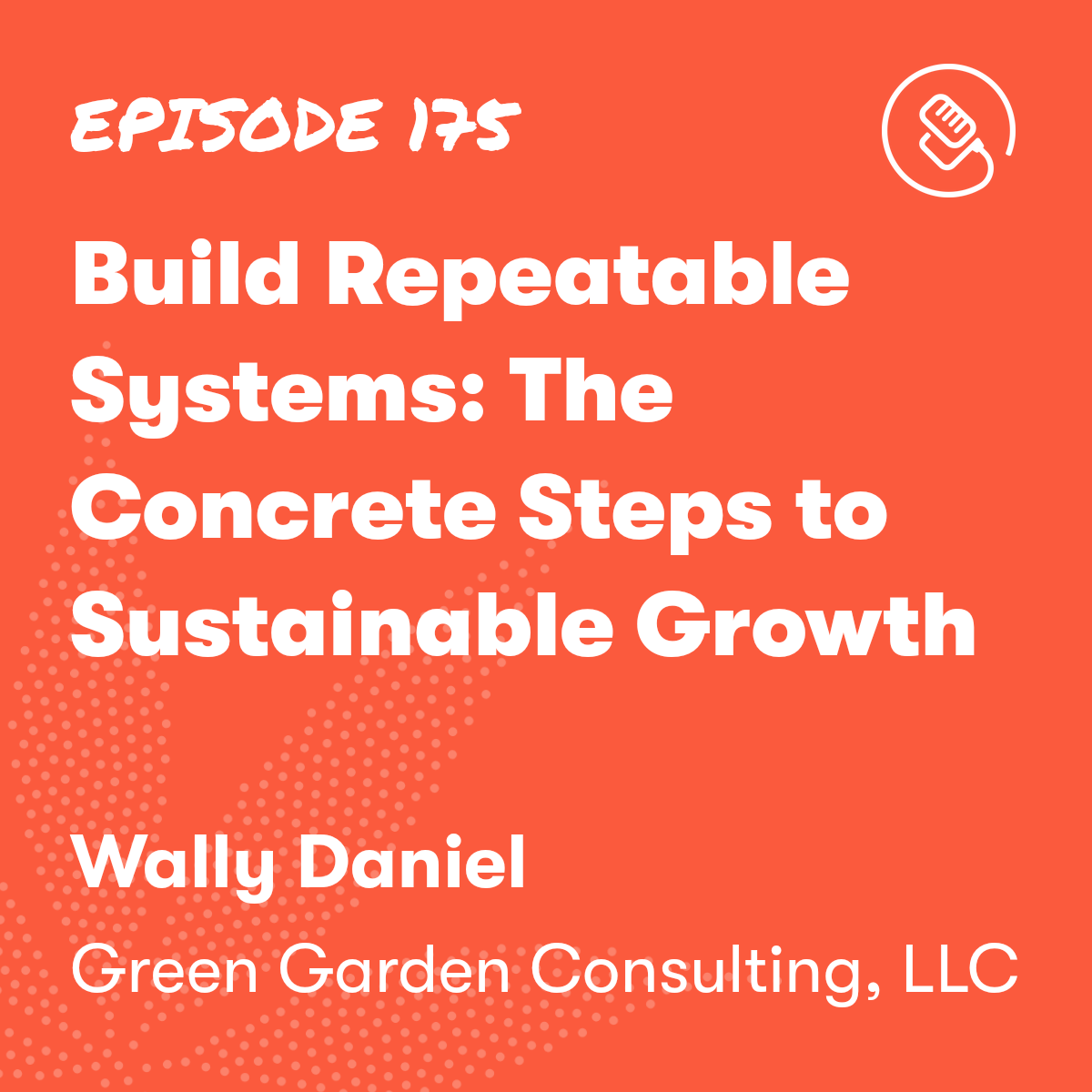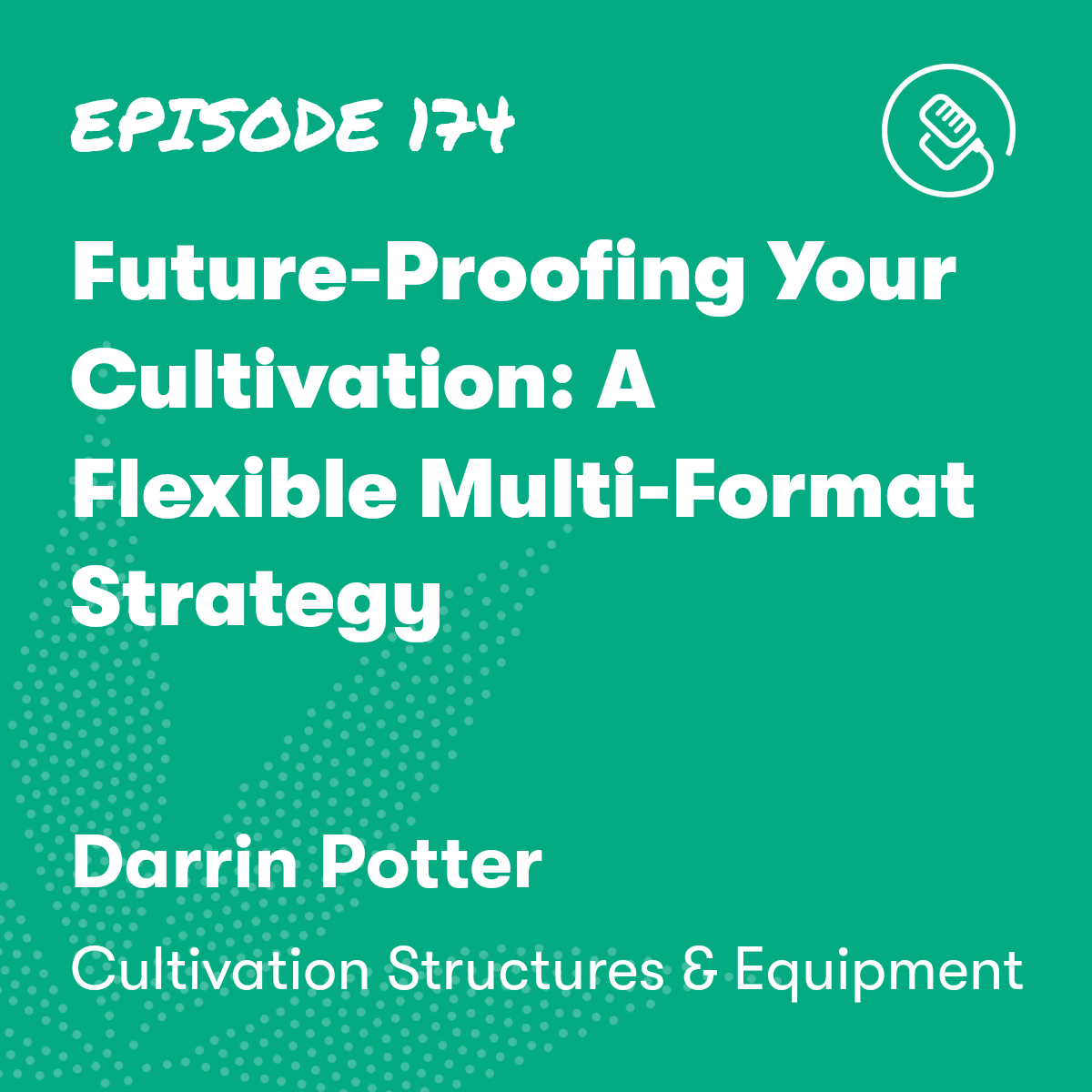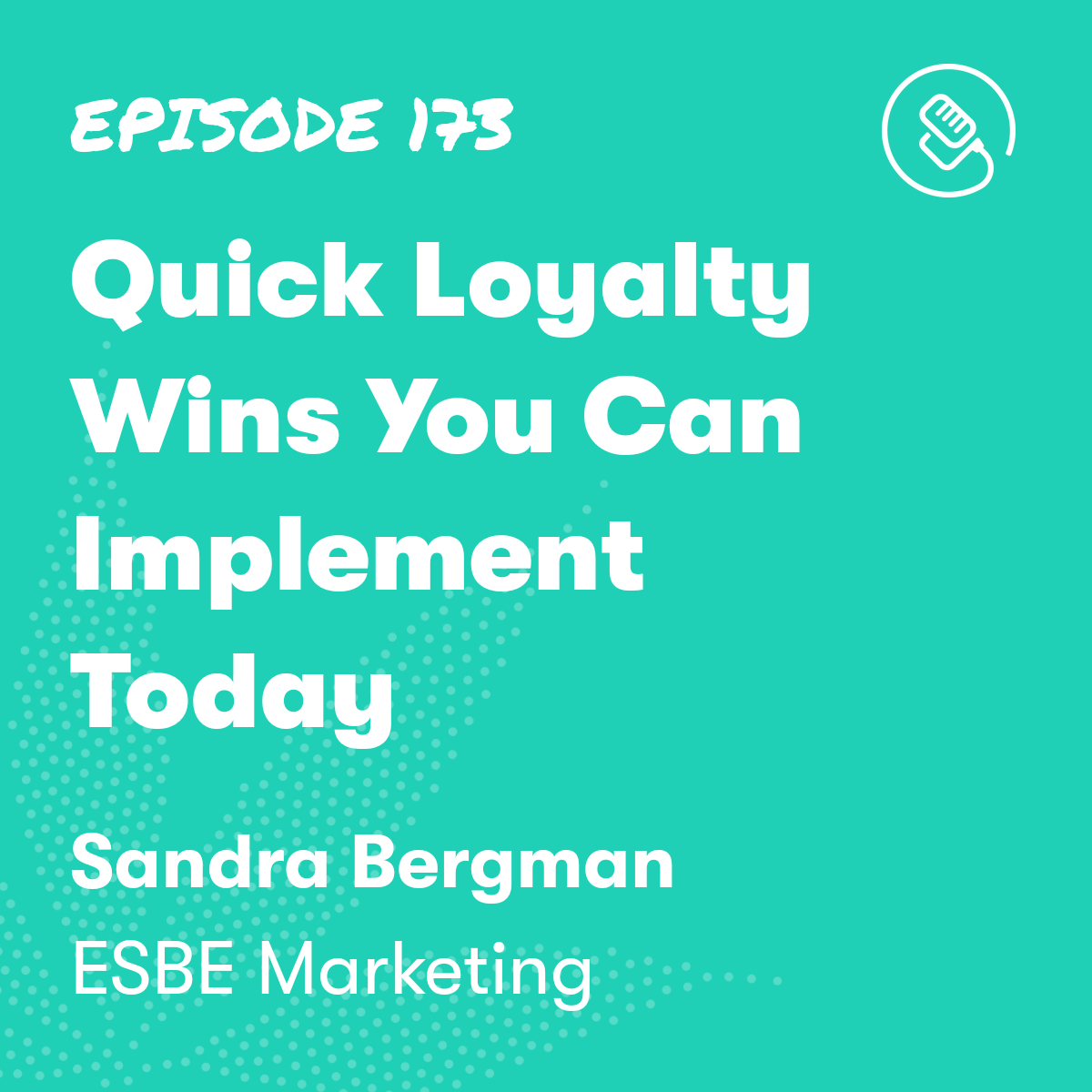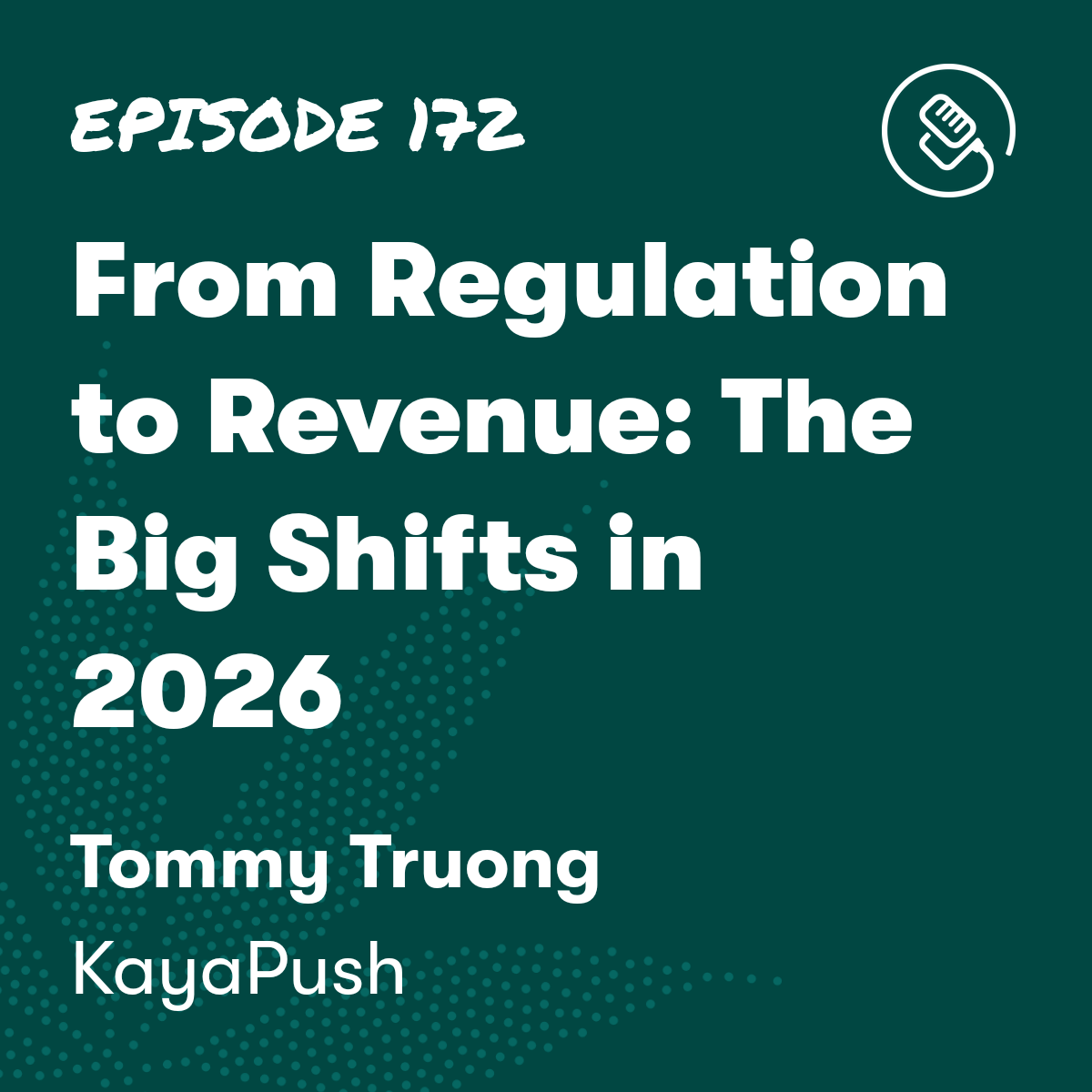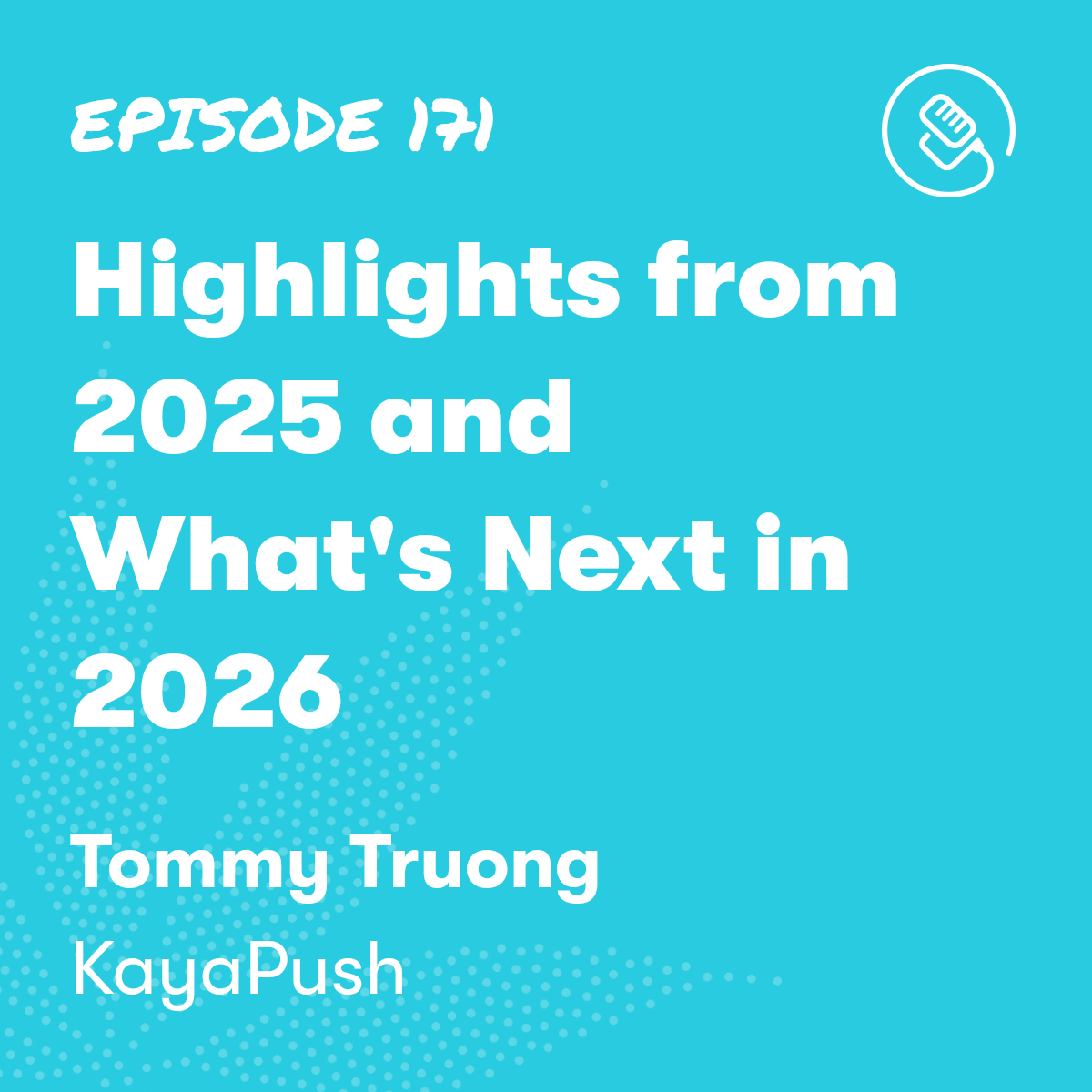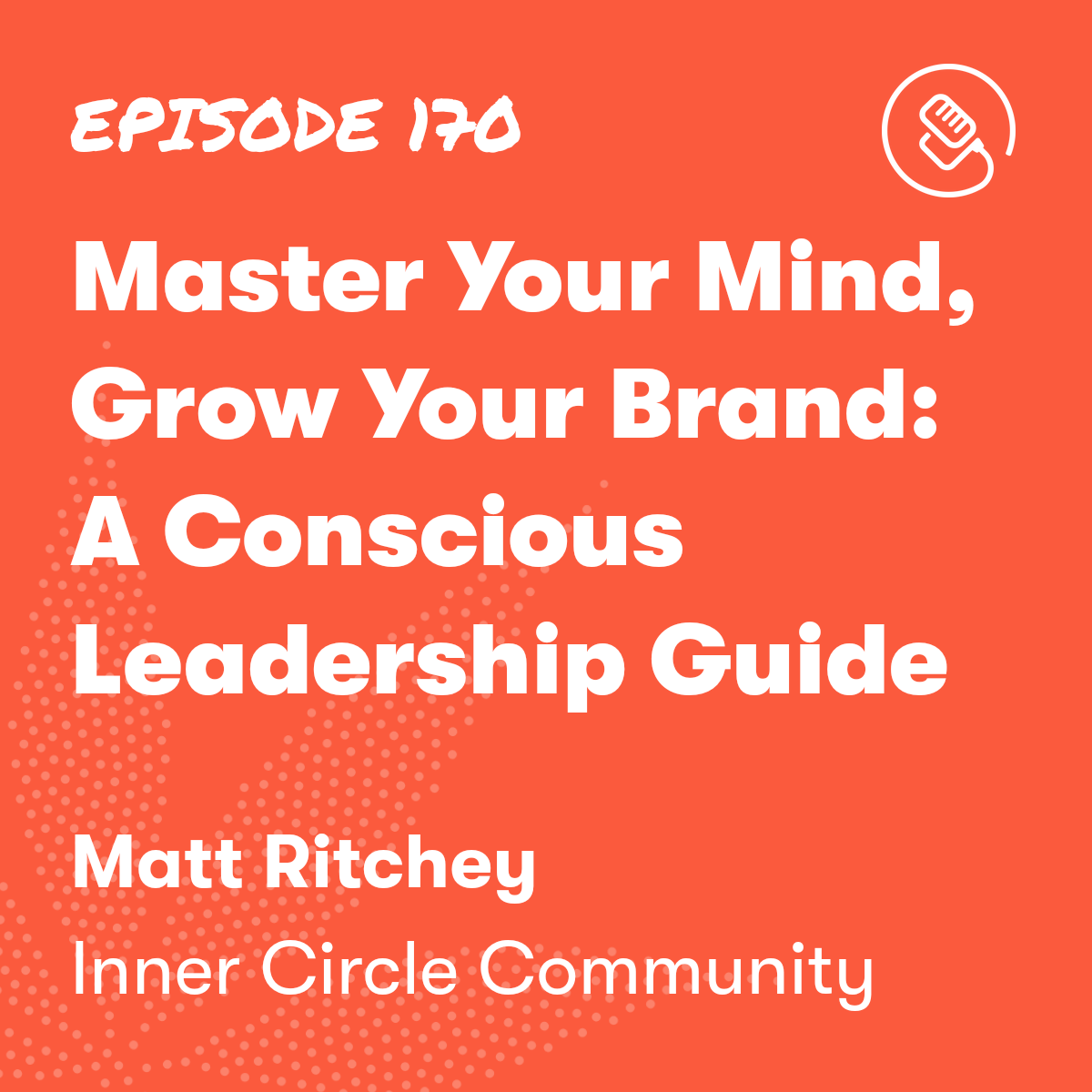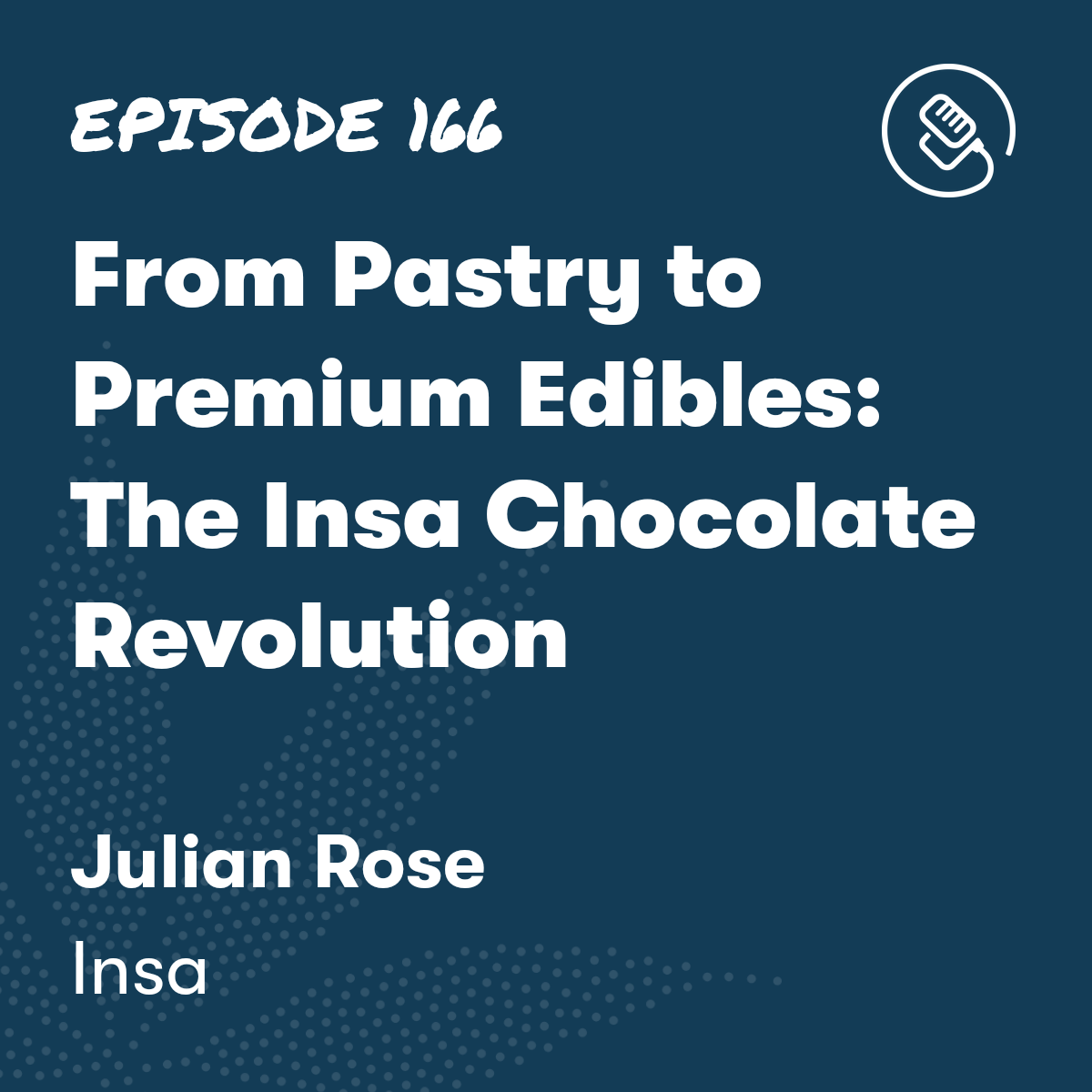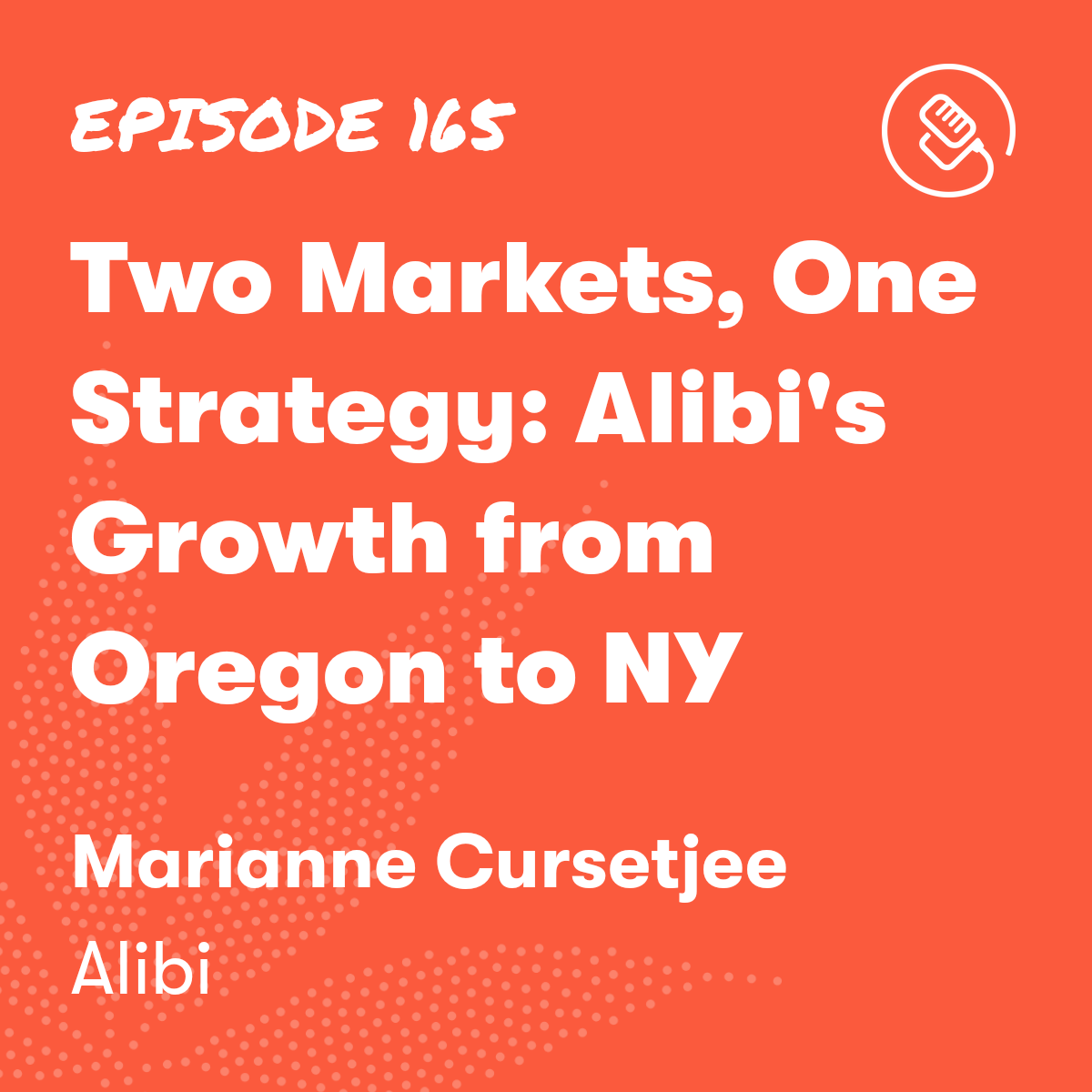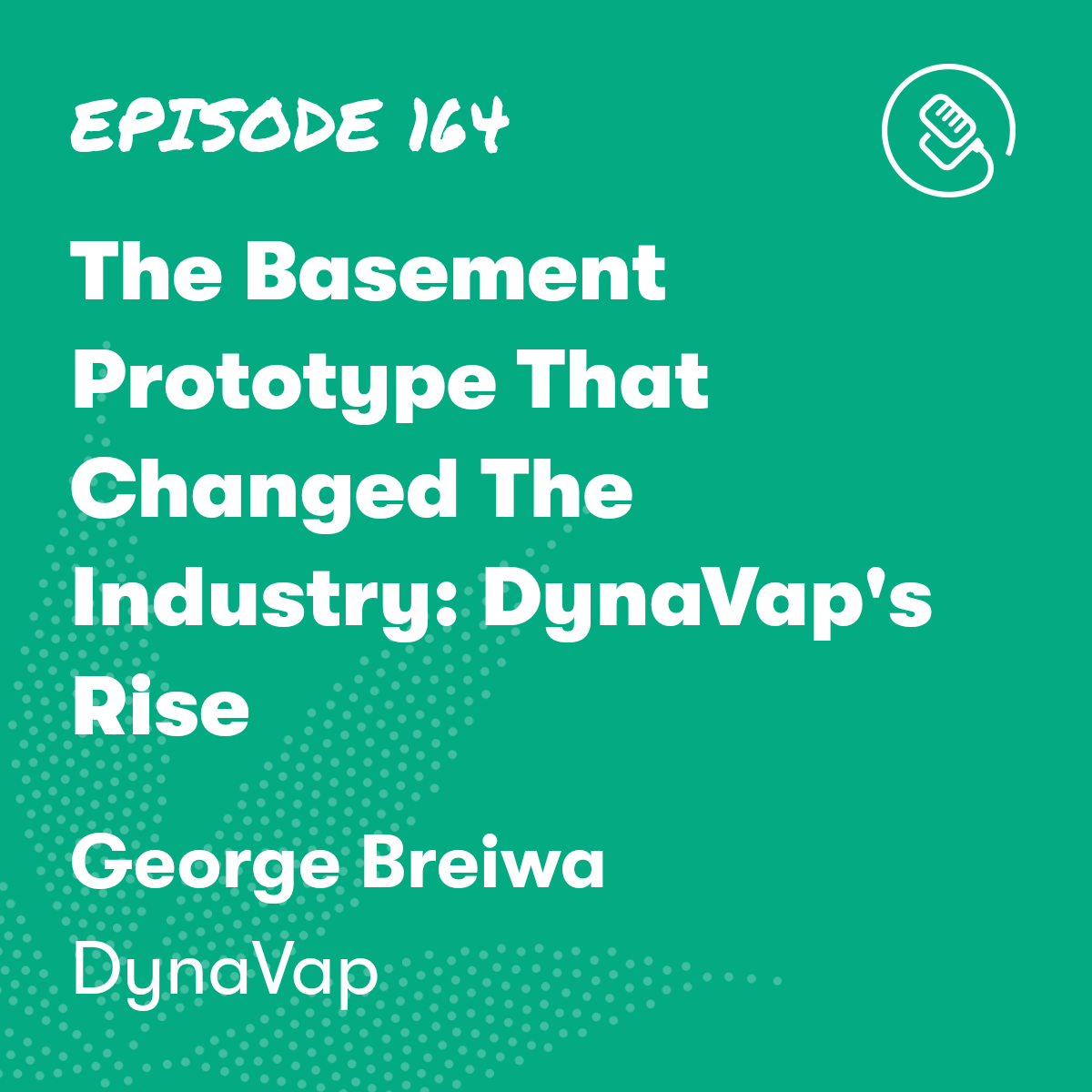

From Trials to Triumph: How Precious Built a Cannabis Powerhouse in NJ
Episode Description

Episode Transcript
[00:00:00] Intro: Welcome to the KayaCast, the podcast for cannabis businesses looking to launch, grow, and scale their operations.
[00:00:11] Tommy: There are so many opportunities in the cannabis industry. One door closes, another door opens. Precious from Precious Canna Co. joins us today to talk about her journey in this industry. She experienced the highs of securing financing a location to the lows of not getting licensed, to then starting her own successful cannabis brand in the New Jersey area.
I really enjoyed my conversation with her. She really lays out her experiences in the industry as well as starting a successful brand. I hope you guys enjoy.
Precious, thank you so much for joining us today.
[00:00:46] Precious: I'm so happy to be here, Tommy. Thank you so much for having me.
[00:00:50] Tommy: So you've, you started a, a brand in the cannabis industry, Precious. And I want to talk a little bit about that, but before we talk about your brand, let's start off on the beginning of your journey.
When did you decide to get into this industry?
[00:01:06] Precious: So, uh, it actually wasn't a choice. I feel like I just kind of like fell into it and then it just Tumbleweeded into something that was like, all right, here I am But I would say around like 2017 a really good friend of mine Tiyahnn Bryant, shout out to Tiyahnn.
We grew up together. We know each other our whole lives. He lived around the corner from me and We've always been fans of cannabis. So he kept telling me one day, like, oh, this whole industry is happening. He went to school out in Boise, um, in Idaho, so he was able to see like the West Coast markets build up and he's like, oh my god, this is gonna, this is what's gonna happen in, in New Jersey soon.
And I'm like, ha, no, West Coast people are like one with the earth. It's not coming to Jersey. I'm going back to journalism school. And then the next year, literally like 2018, he came back and was like, I started this business. At least you can do is help me as my friend. And I was like, you know what? Fine.
After barging into my office, I was like, all right, for sure. And I started to look at the materials he had at the time. We were building a delivery platform called Roll Up Life. And I just started to understand where he was trying to go with it, like cannabis delivery, campus legalization, cannabis advocacy, just all these things that didn't feel like was a real industry.
The proof was in a pudding. And I just went down this long rabbit hole of like reading and understanding and rules and licensing and regulations. And I remember sitting back, I was like, does anybody else know this? Like who, who else has this information out here in New Jersey? And that's just kind of how it all started for me.
So I started to help build Roll Up Life, became a co founder there, and a chief operating officer. And our goal was to provide a seamless solution to cannabis via technology and via delivery, right? Delivery and cannabis is something we've always known in traditional markets. We wanted to find a way to optimize it and bring it to a regulated market when, um, when legalization was to happen in New Jersey.
But it was multifold. We had to support legalization, meaning that we had to be advocates. We had to tell our legislators like, Hey, legalization in New Jersey will actually change the game economically, socially, so many of the, so many other things. So by 2018, 2019, we really got our legs underneath us and started to build a platform and a name for ourselves, mainly to show other people that look at what two African American young kids at the time, we were like 25, 26, 27, Look at what we're trying to do.
Like we need more people to join us on this movement. And that's essentially how it started. We went for a, um, delivery dispensary license and I just kind of just entrenched myself in the industry by, by that time.
[00:03:50] Tommy: So Roll Up Life, what state were you guys operating in?
[00:03:53] Precious: So that was in New Jersey. We started Roll Up Life as a delivery company. We actually started delivering CBD and that was our way of just trying to figure out, like, if we were to do this on a, on a legal scale, on a business scale, what it, what would it look like?
And we really paired delivery and technology. We started to get into the weeds with building this platform. We were like, Oh my God. Who has an app out here in New Jersey where you can just jump on, look at different products, order, and it's right to your door. Delivery exists with everything else. And then COVID happened.
And we saw delivery was like instrumental in like literally daily life. And since COVID delivery has been that strong. So we just kind of really had a head start and want to understand the mechanisms for delivery, but pairing it with cannabis products. So it started with CBD. Um, and that was interesting.
It gave us a lot of time to like learn. How people would react to an app, how we would work a backend, how we would market being that we were so restricted on Instagram and so many other places. So like 2019, we were 2020, we were really just playing around trying to figure it out. All while pushing for legalization in New Jersey, which ended up passing as well in 2021.
[00:05:03] Tommy: That's interesting. Roll Up Life is a B2B platform.
[00:05:07] Precious: Yeah.
[00:05:08] Tommy: What, when did you decide, Hey, you know what, I'm gonna, I'm gonna explore the dispensary route.
[00:05:15] Precious: So. We studied delivery hardcore. It wasn't like a fluke decision. We went out to the West Coast. We were in the Ease Momentum program and we got to learn from Titans of Ease.
We learned from people at Drizzly and Lantern. We learned from very powerful delivery companies just to try to understand how are you guys doing this thing? We even learned from like Uber, DoorDash, Grubhub, like what are their financial models? And we realized it's very hard to monetize delivery and cannabis.
Even though it seems like it would be so easy and it's for a plethora of reasons. You know, you can think of taxes, you can think of service providers, so much other things. So we're like to really stabilize this data, really to bring an investment, we need another piece of the supply chain. And at the time when New Jersey let out its laws, it gave dispensary owners the ability to deliver.
And it also had a separate delivery license. So we said, Hey, we might as well pair what we've done already with delivery. With the retail, you know, have a flagship store in our hometown. How dope would that be? Number one, roll up like store, roll up like delivery. The plan was so clear. And when we did it that way, we were able to really become, we really were able to understand the business of cannabis a lot more and how the retail would support delivery, how delivery would then support our consumers.
And we were able to get investment that way because we made the numbers make sense after that. And that was our hope and dream at that point.
[00:06:41] Tommy: So where did you start in finding investors?
[00:06:45] Precious: Oh man, we started pitching the minute we felt like we had something going on. And, uh, we were just fearless. I'm not going to lie.
I haven't thought about that time in a while. Cause so much time has happened. This is like 2020, 2021. The minute we felt like we had someone, we were running to pitches. We went to pitch force and they'd like free pitches and we were winning every single one. I can't remember a pitch I did that I did not win.
And that's not like a, it's a humble brag, but it reaffirmed that, okay, we have something here. Like investors, whether they gave advice or rationale, no one said, no, we ended up in deal making rooms. It was just us finding the right deal. So that means. People truly understood what we were trying to do in terms of leveraging delivery.
Leveraging culture, leveraging advocacy, leveraging what we knew to be cannabis, leveraging us as founders, pairing it with a great financial model, with the retail dispensary, with the new market, new licensing, new opportunity. It felt like a win win and we were able to really get into investment talk super early and I just recommend it like if you feel like you have Strong idea.
You're able to put it together in a pitch deck. Pitching is not necessarily just to immediately gain funding. You learn so much about your business via pitching, just from understanding how other people are perceiving it. It helps you speak the language a lot more. The questions I would get from investors, like, what is your customer acquisition numbers?
Had me running back to actually go look that term up so I can be prepared for my next pitch. So as soon as we were able to like really formalize, Hey, this delivery and dispensary would make sense. We started pitching and we looked everywhere, big, small, all over the country. We started, I always tell people, start within your communities.
There are people within your community that can support you. Our goal, our dream, we had started, we were like, Hey. Can we start a VC? We're big thinkers over here. We wanted to start a community fund where literally our neighbors can pour into this fund. And then we would use that to support business. And we brought lawyers in.
There were so many laws around it. Um, you know, with securities act, we were just really trying to figure a way. To get our community involved. So that's one area you can explore. We looked at angels. We found an angel investor that was just really believed in what we were doing and also went through traditional routes.
And, um, Really we didn't leave any stone unturned.
[00:09:08] Tommy: How did you structure the business? So you had a delivery and you are raising, were you raising for both the delivery and, and the dispensary under one entity?
[00:09:17] Precious: Yes, yes. So that would have separated
[00:09:20] Tommy: you amongst other dispensaries in terms of valuation and scale.
Yeah,
[00:09:25] Precious: it was growth though. You know, we originally, when we started pitching, we were pitching and raising only for the delivery. And we got an angel investor to support us to even build out the technology that would support the delivery. So we got the step one. And then when we realized pairing the dispensary with it, oh, that took us over.
You're right, that increased the valuation. You had a new market, you had a new city, you had new opportunity, um. You know, we had new projections and we were able to really cement it with the fact that we were now deemed experts in this realm. You know, we were one of the first to even start to talk about cannabis on a public scale out of New Jersey and it really just created a very specific way that we wanted to enter the industry and people were able to vouch for our credibility as entrepreneurs.
So it created the perfect storm. And at the time, all we knew was to not say no and to not stop. And it created that opportunity for us.
[00:10:18] Tommy: How many investors did you talk to before you secured the bag?
[00:10:26] Precious: I would definitely say over 60, if not more. Um, it was just complete cycles, you know, intros, other people would intro, there would be groups, there would be, um, funds with a collective of like 20 people.
It steamed ball, we literally did not Not tell anybody what we were trying to do just to see who had a contact that might be interested or might hear for us. And that took us years. That was between like 2020 And 2022, actually up to 2023, um, when we were like still talking, going and really cemented a deal towards like the end of 2022.
So
[00:11:05] Tommy: where, where were you in the business? Where were you in the business? Did you get licensed yet? Were you pre licensed?
[00:11:11] Precious: All pre Revenue, all pre revenue, all pre licensed. Licenses for delivery didn't even exist yet in New Jersey. We had still been delivering CBD. and using our CBD numbers to show traction and growth.
We have a bunch of traction. We had a bunch of earned media. We were in every publication from cannabis to non cannabis known to man. And we use that leverage to say, the minute we get this license, you can only imagine how far we can balloon this. And then, um, also being pre revenue, we were really able to like show our numbers based on the medical market.
And how it was rapidly growing and how the minute recreational would turn on What those looked like and those numbers happened to be correct for those who were able to get that early market start When um recreational market launched here in new jersey in 2021 So we again we just had that perfect storm of opportunity and time we had time on our side for sure
[00:12:01] Tommy: For those that are listening that are in the rays today and you're in the thick of it Just use this as an example, 60 investors, uh, you know, over the course of two years, that's a long journey.
It's
[00:12:13] Precious: long. A lot of talking, a lot of deal rooms, a lot of back and forth, a lot of legal spending. One thing I will say is like, if I had advice for people looking into raising, your talking to so many people, your time as a founder is also money. Yes, you're asking for capital, but sometimes when you move further in that process and you get to deal making, you start to involve lawyers and legal teams to structure deals.
And if those deals don't come up, you know, come all the way to fruition, you might've just spent 5-7K on just paperwork. Right? So really take your time in that beginning when you're vetting, you can also vet your investors and say, Hey, how serious are you? How liquid are you? Where have you invested before?
To give you sort of an idea, like if I'm ready to shell out, you know, and um, you know, legal fees, or if you already have a template that you're using that can get you far enough before you get lawyers involved, that's also very helpful. Um, do not be afraid to say to your investor, I would also like to know more about you to help me make a better decision about whether or not this is a good fit for us so that we can move effectively and efficiently to get this up and going.
[00:13:19] Tommy: So at that time, what were the valuations like? What was pre money, post money?
[00:13:25] Precious: Oh man, it was One investor told me, I've never seen a bad pro forma. And now I know that makes sense. Because everyone's going to think that whatever numbers they're putting down are like, are right. But I would say for the delivery, dispensary, pre money, we probably valued it a little over three and a half million dollars.
And we were very conservative. Um, a little, a post money valuation of about 10 million because at the time, like Jersey was just booming. Like New Jersey is a very special cannabis market and it still is, you know, 11 million people in this, in this total state, super condensed, drivable top to bottom, no recreational licenses at the time, only, um, a dozen or so medical licenses awarded.
It was just a very ripe opportunity. Um, market. And we did see that when the switch came on, you had stores almost doing like a million dollars a month in New Jersey. Um, when legalization happened. And of course now we're seeing that even now with more licenses coming on board, but we were very confident that we would, we would have been a part of that first mover advantage to make our valuations make sense.
[00:14:36] Tommy: Wow. So you guys raised a lot. Okay. You secured the bag, what was the next hurdle in setting up your shop?
[00:14:45] Precious: Well, you know, going through investor relations, we had a super dope investor, um, who was also owner of our property. So how did
[00:14:54] Tommy: So how did you meet him by the way?
[00:14:55] Precious: Locally, like it was actually someone who was in our community, in our neighborhood was a developer, real estate developer, real estate developers, hotel people.
I always say, look for people in that area who just really understand a lot about business already. And a lot about, um, You know, space, how to operate a retail, how to operate land, how to go through land use, how to go through zoning. It just speeds up that process and he had a bunch of knowledge and just added value as an investor.
Um, and so when we met him and he was just like, oh, he just, he, he was a guy and also you got to get invested in believing you as a founder. I don't think he knew much about cannabis or even cared much about cannabis, but he just said, I've never seen two people. Want to attack something as hard as you guys are and he saw a lot of that in himself when he was launching his businesses You know when he was starting up, so that's how our pairing really really cemented So he had a great location great building We we structured a great deal that included the property that included the investment So the property was also part of the investment and again creative financing y'all whole new term I've learned there's different ways to structure a deal A million ways to splice it and dice it.
Um, and that's how we met him. And he was just, he was just super supportive of us throughout the whole entire time.
[00:16:12] Tommy: That's amazing. And I can't stress that enough. Investors invest in the horse.
[00:16:17] Precious: Yeah.
[00:16:18] Tommy: That's 80 percent of it is who you are. Do you have the drive? Do you have the energy to carry through?
[00:16:25] Precious: Absolutely.
[00:16:27] Tommy: So you don't have a dispensary today. What happened?
[00:16:32] Precious: I mean,
[00:16:32] Tommy: the biggest, that's, that's a huge hurdle, right? That you got through.
[00:16:36] Precious: Yes. You're going to make me relive it. But you know, I tell this story now with a lot of pride because I want it to be always a learning lesson for other entrepreneurs and candidates like this can happen.
This industry is. So many things, right? It is, it is filled with sharks. It is no games when it comes down to it. You really have to be strategic in maneuvering through this industry and really just have all of your antennas up, which we thought we had. So just run this by you real quick. So we had all the things we had investment, we had property, we had support, we had culture, we had our app.
We were just ready. You never met two more ready people. The application, and then the thing is that I grew up in a town called East Orange, New Jersey. Shout out to East Orange, they're my hometown. And this is a town, it's a small community, urban community, roughly about 75, 000 people. But we all know each other.
We all know each other. Like, the mayor and my dad get along. The council people were my former substitute teachers, swim coaches. I grew up through this city. I am a product, a true product of the city of East Orange, and so was my co founder, Tiyahnn Bryant. We introduced the idea of Canvas to the city. We helped the city write its ordinances.
We helped the city understand where you can add this tax revenue, um, how it can be applied, what social equity means, how you would structure this thing. We were literally at city hall, Daily, helping them understand what we were trying to do because we also live in like a pretty senior community a lot of our population is seniors, and they also didn't believe in cannabis.
We spent a lot of time doing educational events That invited the city, invited city council, brought other cannabis industry leaders for them to mix and mingle so that they can see this is not backdoor alley, you know, deals that are happening. This is a flourishing industry that's competitive or comparable to any other industry.
Um, and we did that all while we were business building. That's in that, that was happening parallel. So application comes, we're ready. If I had my binder, I'll pull it up for you. We wrote our application in the library, okay? No application writers, no none of that. We were, we were now, you know, we understood it.
Um, we applied, we had the highest score, um, of all people. I think about 15 people or so applied in the city. It's a very competitive, competitive city because we're known to be a transit village. We're like 25 minutes from New York. It's walking traffic. It's just, it's a great city. I love my hometown. Um, we got the highest score and we had a building.
But then I started to hear rumblings that, you know, There are zoning issues. I'm like, but what zoning issues? We make sure that we are in the green zone, as mentioned by the city. Um, we found out that there was another applicant who had a building right next to ours. And that applicant was backed by some very powerful people, politically.
So I'm like, huh, well, I'm not sure how much of a factor that should happen if we're going by merit. You know, we had the highest score, We had the best presentation. We're from here, homegrown. It gets no, we had tens of like, we had almost a hundred people come out to our city council meetings to hear us and see what we were doing.
Cause again, we were inviting the community invest one day. So they wanted to see what their investment was going to be. And the rumblings started to pick up and I started to get calls from council people saying, Do you have another property? I'm like, what does that mean? Do you know how hard it takes to lock down a property of that nature?
It's a beautiful property. How many square foot? I think it was well over 6, 000 square feet, just the property. The whole entire thing itself was a little over 19, 000 square foot, huge parking lot, right off a freeway. Ah, chef's kiss. And, um, yeah, so we're having these meetings and next thing I'm knowing we're in an all out, Hey, you might not get this license anymore because, The State Democratic Chairman, who's also a lobbyist, who's also the East Orange Democratic Chairman, who's also the Essex County Democratic Chairman, who's also the State Democratic Chairman, is lobbying for these other groups to be there.
And the other group is also a former councilwoman. The other group is also a very high investor in, um, property within the city. And I'm just like, but we have the highest score. So it comes to the day, I call everybody I know. I call the outlets. I call my, I call them my cannabis. Advocacy Avengers. We showed up to City Hall right during the day they were awarding licenses.
Everybody was there and they gave out the awards and they did not give Roll Up Life an award. So there goes the dispensary. There goes the delivery because we needed the delivery to be attached to a dispensary. There goes all those years 2017, 2018, 2019, 2020, 2021 of hard work and It was, it was defeating.
It was, it was, it was, I think everybody who was there at that council meeting to this day remembers the eeriness and how I got back up after the decision to talk to the council people. And I wanted them to hear me. My mom was there, she was crying hysterically and I'm just like, you know, this is a crazy disservice.
I was crying. I was just like, You guys have failed us, you know, you have failed at letting other people who go, who are from the city, who leave the city to go to college, who come back and want to invest. You failed us in letting us know that it will always continue to be the same old, um, when it comes to politics and, And it affected the relationship with me and my founder.
You know, we didn't know what to do. Some people wanted us to sue the city, some people said don't sue the city. You know, there's other cities you can go to. It used to baffle my brain that people thought that what we did was so replicable and so easy. Just find another property, find another investor that's linked to a property.
Will my investor move to another property that he doesn't own? Well, he didn't pour money into it. I'm like, what are we, what are you saying to me? And, um, yeah, it was just a tough time. And that happened April, 2023, April 10th, April 11th, actually. April 10th, 2023 was when we got that decision. And yeah, it was tough at that time.
[00:23:03] Tommy: So after that, how long before you pick up the pieces and you start a brand? And what was that? How did you spawn that idea?
[00:23:13] Precious: Man, I actually wanted to exit cannabis. Like, I was on this couch over there. You can see my couch. I was like, all right, it's time to go back to corporate America. Like, we gave this a go.
Entrepreneurship is hard as **** we gave this a go. I was a journalist. I went to Howard. I even went to Columbia University J School. I was like, okay, it's time to pick up those pieces of my life again, because there's no way people Tell us that we're building this industry for people of color. We want to reinvest.
We want to do this and we go through our process and nothing can be done. Our cannabis regulatory commission can't do anything because they gave municipalities that power. Our investor can't do anything. Like it's just a gridlock outside of like sue or not sue. Um, so for like a month I just was stewing and Trying to figure out what was left, but I have so much support and shout out to like the entire cannabis industry.
I had people call me from California, Colorado, Oregon. I didn't even know some of these people. They were reaching out to me on social media, email, phone calls, just like, Hey, we saw what happened. That was insane. But like keep going. And that really put a battery in my back. I was like, all right, I can't have shepherded so many, especially black women.
To say, Hey, join this industry with me, let's make space. And then I go through an obstacle and then just back out. I didn't think that would showcase what we wanted to see when we think about making this industry equitable. Right. So I remember someone telling me, and I can't remember who it was, but I remember the word specifically.
It's like, you just need to package yourself. What do you mean package myself? And I let that sit with me for a while. And I started to say, Hmm, I don't even know what kind of brands are in dispensaries. Like you talk about having one dispensary, but like, what are the products in dispensary? Number one, I was really looking for a connection back to cannabis.
Like I am a consumer, truly, I love it. I use it for a bunch of different reasons, socially, wellness, the whole nine. I love the different form factors. I love the exploration. I love like holistic healing and I love a pre roll. Like I felt like I hadn't even smoked a pre roll. And Lord know how long doing all this business building.
And I was like, okay, that's interesting. And then I went to look and there were no black owned products at that time on the market. Like I went into dispensaries and I was like, Oh my God, I don't see myself in these dispensaries. And I didn't even know how it started. I just started asking questions like, yo, how I saw other brands that were owned by different people or different MSOs and I'm just like, How do you guys get this actually on the shelf?
Like, are these just cultivators? What's happening? And that, that train of thought just unlocked everything else that would be precious. I just kept chasing. I would find an answer and have another question. And that just kept putting the ideal in my head. So April got shut down. May stood around on the couch for a little bit.
And by June, I had another LLC formed.
[00:26:23] Tommy: So you decided two months later, Hey, I'm going to start a brand. What was the start of it? Did your investor come with you? What's your relationship with your investor after this deal fell through? And you know, where's it today?
[00:26:35] Precious: Super dope. Like he, he relinquished us from our lease, which was, you know, we had a signed contractual lease.
We would have started having to make payments on his huge property with no expected revenue coming in. But because of the circumstances, he was just very gracious. He gave us an opportunity to just try to like find new properties, explore that relationship for a while. And we tried for a while just to see that and shout out to my co founder, Tiyahnn Bryant.
You guys stay tuned. Roll Up Life still has a bunch of stuff in the works. Delivery is still coming. Expensary is still coming. So you'll be hearing about that soon. But um, I broke away. I was like, all right, I want it tied to take Roll Up Life on. I feel like at the time, I felt like I did everything I could for it and to support it.
Um, and I just didn't know where else I would go. I was honestly scarred of licensing. I was like, I don't think I can go through another licensing process. Um, and he allowed me to just kind of like take the time to kind of see what I wanted to do and explore the industry. Um, so yeah, I didn't need, I, I knew a lot about investment, right?
What happened the first go around with the first company really helped me in my second company because I knew exactly when I needed to reach out to investors. I knew exactly what I needed to put together. I knew what questions they were going to ask. I knew how I would set up a deal. I knew how to make it sort of advantageous.
I knew being asset light would have been to my advantage. Um, so, and I knew that I could possibly self fund for a while to give myself a better valuation when I'm actually, um, making money when I'm in revenue. Pre, pre revenue raise is extremely hard. You need to be able to show somehow, some way. All of these things are going to come to fruition.
[00:28:15] Tommy: What it's all the worst in pre revenue.
[00:28:17] Precious: I might have the gift of gab, but I don't know if I'd be able to do it a second time around. So I was like, I think I can possibly get myself to revenue and create a better enticing deal. If I go back to investors, because now I have our members to show for what I'm doing.
So before I even started to think about investors, my immediate thought was just research. I went again, I spent a year before I even committed to building Roll Up Life. I was like, all right, I don't need that much time, but I just, I started to investigate and this information is not readily available. I have to use my network networking.
Any person I knew who had a relationship to a cultivator or had a relationship to a brand, I got intros and I was able to really understand like, how do you form this packaging compliance? Where does the product come from? What kind of deal structure is this? What does licensing mean on a brand side?
What does co packing mean on a brand side? How I would set it up and I use like a month or two while building a company to really get those answers before I was able to figure out what I wanted to do next. So I moved pretty fast, pretty aggressively because I had a huge network of people that I can reach out to, to help me understand, well, how, if I wanted to do this, how would I do it?
And amongst those calls were some of my favorite retailers that are now opening Jersey. It was just like a regular call, check it in. Hey, I was like, if I launched a brand. Would you put me on your shelf? And they were like, top shelf. Immediately. Yesterday. We don't have any black owned products. Like there are no minority products.
Like yesterday. And I was like, huh? And that was a resounding thing with every retailer. They were like, yo, the minute you get a product out, I'm buying it. So I use that as leverage. I got those LOIs. I was like, all right, great. I know that I'll have sales. Now let's go back to the, to the front part, you know, let's build it out to get to sales.
And I started to charge on from there.
[00:30:08] Tommy: You mentioned something that is so critical when you're starting a business, especially a B2B business. Cause essentially you went B2B, B2C, and then back to B2B,
minimum viable product. It's that's what you did, right? You went out and got customers before you built the product.
To, to, uh, validate whether or not you have a business. And that's, it's so critical because you don't need everything else. It's, you know, what is the, what is the answer run in front of me? So you, you got a lot of interest found that, Hey, I have wins behind my back.
[00:30:41] Precious: Yeah.
[00:30:41] Tommy: I can get shelf life.
[00:30:43] Precious: Yeah.
[00:30:44] Tommy: How many cultivators did you have to talk to before you found the right partner?
[00:30:50] Precious: I actually talked to three because there weren't that many in New Jersey, right? There were probably like seven? And they were all MSOs in New Jersey at the time. We just had independent cultivators start to come online. Some of them weren't even open when I was talking to them. Um, I, I spread it out, but there were three I was in main talks with.
Two MSOs and one independent. And that was actually a decision I struggled with, right? Everybody had interest, because again, um, here's another first. With Roll Up Life, we were the first black owned, uh, Delivery company to, to even set the stage in New Jersey, probably, you know, on the Eastern shoreboard, um, on the legal side.
And then here I am again, first black owned pre roll brand, you know, just like I didn't under, it sits in now, but like really chipping at that barrier is super important. And there's a lot of support there. Um, so I really needed to understand number one, what did I care about as a company? What were my values?
I made that very clear to me. As a lover of cannabis, like I just really wanted super great quality. I knew I wanted to build a brand that felt luxurious and not necessarily by sight, but by taste, by feeling, by everything. I, I knew what it was like to consume the best of the best cannabis product. It was just never packaged in a way that looked like it would be for someone like me.
So, um, quality and efficiency in your operations was something I looked for, for, from a co worker. And then also for me, I generally wanted that ethos. You needed to want to create an equitable industry. You really, you needed to want to fight the fight that I was going to continue to fight via this industry.
I'm not in this industry just to push a commodity. Like I have a whole agenda to essentially find a way to right a lot of wrongs that happened, um, because of cannabis. And I think it's through our economic impact that we can do that. It's the policy impact through being involved. So you have to sit with that ethos and know that I was going to be very loud about that, um, as a brand and it's what my brand represented.
It represented resiliency. And represented opportunity. Um, and not everybody, that's not everybody stealow you know, so that we did some folks out for me anyway. Um, so I had to make a decision that I want the big button pusher, get a product out there, you know, do everything or did I want to go with an independent?
We're probably need a little bit more love, a little bit more time and attention, but you have a lot more autonomy. You have more, um, variety of product perhaps. And um, I ended up doing that, ended up choosing an independent copacker. Take care.
[00:33:15] Tommy: Oh, awesome. What was the, I mean, without getting too much into details, because I know that you're still operating this, you, you went with the independent, which fits completely with your vision of who you are, where you want to take this industry and how the impact you want to make.
How did you structure that deal? And also you're, you're doing this bootstrapped.
[00:33:39] Precious: Yeah, right.
[00:33:40] Tommy: You know, you're creating a brand, you have
[00:33:43] Precious: regulations,
[00:33:44] Tommy: all this stuff, right?
[00:33:46] Precious: I work a lot. I'm working a lot of jobs right now to get, to keep, to keep the cash flow in. But, um, that was another learning thing. I called a lot of people who were just gracious enough to give me information.
That's not readily out there for you to create a deal that your network people. I can't express that enough. And also just being kind. Like these weren't people I just found two months ago. Hey, give me all the information. Like these were years of cultivating relationships with some titans of industry.
Um, so I knew that a brand and it's for everybody who wants to build a brand. I'm an open book. I always tell you how to do it. Um, you're really looking into a rev share if you are not. If you do not have ownership of the product, so I'm not a cultivator. I need to partner with a cultivator. They're the ones growing, distributing, packaging, doing the whole nine.
They're doing the biggest gambit, right? You need to ask yourself, why do they want to give you a piece of revenue to launch your brand? Now, many cultivators have a variety in their portfolio, whether they're own in house brands. Or they launch other brands, but it's mainly because the other brands give them more market reach.
They're able to get into places and speak to other people that their brands may not necessarily speak to. So that's very advantageous to them. And they're willing to enter into some sort of deal to expand that and really support their portfolio and they will experience growth there. So that was something I was able to bring.
I was like, my market directly is black women and also people of color, but I'm bringing in a different, our brands were completely different. And shout out to Clay Nine. That's my co backer. Um, our brands were already completely different. So in structuring that deal, I'm like already now going back, I had pre sales.
Remember all those LOIs that I had from retailers? I was like, well, baby, we already have, we already have sales in the game. And as an independent who was just coming into the market, they were also trying to find their way into doors that I already had access to right before building out their own sales channels and their sales teams.
So there was a lot of like, Synergy and mutually beneficial opportunities before us so that we were able to structure a deal so really with most brand deals, you're gonna enter into some sort of rev share or Licensing deal that gives them the ability to launch your brand for a certain percentage And you go on there and then you as a brand your asset like, you know You don't have rent you or unless you're in the facility already or a warehouse You have to do that.
You then pick and choose what it is You're essentially going to be responsible for you responsible for packaging Or is the cultivator going to be responsible for packaging? Are they responsible for the whole gambit and you're just responsible for marketing? Are you responsible for your marketing and sales?
Or do you expect them to also take on marketing and sales? And you use that to really figure out the balances and the numbers that you're willing to give up and um, how you want to express this. Now one thing to note is that a licensing deal is different from an equity deal into your company as a brand.
You're not looking for a cultivator, which you can, some people do it. I've seen it happen. You're not necessarily looking for a cultivator to have ownership in your brand if that's not what you want. They're just, you're giving them the ability to license your brand and put it out there for essentially a payment.
And essentially that's how I structured my deal.
[00:36:52] Tommy: Is your deal exclusive? So are they, is there a non compete in terms of you can't go to another cultivator later on for that, for your brand? Yeah, of
[00:37:00] Precious: sorts. That definitely plays a way in like where you guys want to see your partnership go. And it honestly creates a level of trust with you and your partners to know, all right, hella high water, we're going to be locked in for a time period.
So I did put in, and again, to each his own, I know some people don't, but I think when you're starting off and you don't have all the leverages, you're not the one growing. There's certain things you're going to need to concede on and think about. So I didn't mind entering into a period of exclusivity with my team because I knew I wanted, I knew that they were just building out.
Like they still had to. Get their cultivation up and going, get things going. We would need a good period of time to just submit processes before floor, before product even hit shelves. Right. And if I'm, you know, it didn't make them feel secure. If new cultivators are popping online and I'm still shopping the idea around and they're preparing all these, all these things, spending time, money, assets to launch my brand.
So, um, to each his own exclusivity. But I would definitely say there is also a time where you don't, you don't need to be an exclusivity for super long periods of time. Give yourself an opportunity to renegotiate. Give yourself an opportunity to look at milestones and understand growth and see you guys maybe have outgrown your partnership or can continue to rock on.
[00:38:13] Tommy: Also, is there a minimum in terms of what you have to produce? Because you're now responsible for sales, sales, marketing, getting through the doors. What does that look like when you're structuring out your partnership.. So,
[00:38:26] Precious: really as a brand, that is your responsibility. Wether or not they're also going to be helping, you, they're already growing the product, distributing, testing, you know, packing out labor, all of that, it is literally your job to make sure that you have doors ready and that you're also talking, while I'm B2B, I also make sure that B2C is there.
I have to connect with my end users so that they know I'm here, so that they know I'm present, so that when they walk into a dispensary and they hear about my brand, there's some sort of like connectivity that's like, Oh, I've heard of this. I've experienced it. And if not, Oh my God, tell me about a black woman pre roll brand.
I would love to learn more. You're building relationships with buyers and buttenders and letting them in on your story. Unfortunately for me, you know, I'm in New Jersey. It's my home state. I love it here and cannabis industry people are my people So a lot of them already knew what I was doing and they didn't even understand how fast I did it Some people were like, wait a minute.
I thought what I'm like, huh? Huh? See what I'm doing. So they were like so ready to mobilize on my behalf. So again, I just think I had A great start just from all the work I put in in previous years, but that didn't stop me. Like I still created marketing materials, brand guides. Like I'm sitting here looking at some of my stuff.
These are in some of the dispensaries that you'll see coming up. I'm literally building out my email list, letting people know I'm here. I have, um, great packaging company. Shout out to A. D. Global who created my prototypes, who worked with me for months to get it down to. Exactly what I wanted these things to look and feel like my color schemes.
So that is your responsibility as a brand is to create traction because every month you need buyers calling you saying, Hey, I want you on my shelf. In New Jersey, again, I encourage everybody, find your way into this space while there's still time because there are very limited brands that have diversity around it.
Um, and right now, there are about almost 200 dispensaries, we're reaching that number. And product variety is going to be the only thing that separates these dispensaries, right? So they want to find a way to have precious on their shelves. They want to find a way to have different brands and form factors.
So that they can tell their end consumer, look what I have that somebody else doesn't. And I created my brand that way. I didn't want to be in every dispensary. I wanted people, I wanted to go back to what I knew about cannabis. You gotta call, you gotta menu, you gotta get on it quick before it's gone. I wanted that same effect that I knew culturally applied to, to legal, to, to legal cannabis, but also done in a way that I felt like spoke to a community that is so underrepresented in cannabis and that's black women.
[00:41:07] Tommy: What's next for your brand? What do you have in the, uh, in the horizon?
[00:41:12] Precious: I'm so excited. So after all types of navigating and production cycles and delays, we are in our first 20 doors here in New Jersey from the tippity top all the way down to Atlantic city. So that list is actually dropping today on our social media.
You can go look at that at Precious Canna Co or on our website, www. preciouscannaco. com. So you can walk into dispensaries in New Jersey right now, um, and find Precious. You can see what dispensaries I'm in. We're going to be in a lot more, um, coming up. And if you guys have any dispensaries you'd like to see me in, definitely ping me and I'll see if they align with what we have going on.
One thing you know, is that my partners were all specifically chosen. My retail partner, I loved having that autonomy because I want you guys to know that if you're, if you see my brand in a certain dispensary or retailer, That brand is about business. That brand is about equity. That, that, that retail, rather, is about business.
That retail is about equity. That retail is about supporting black women. And that's why we have our partnership there, so. I'm very excited for that. And then the plan is to really just continue to grow throughout Jersey. I really want to create that, um, excitement around brand launches. I have different SKUs I'm dropping, hopefully towards the end of the year, um, and different form factors and just, you know, just have a good time with it.
And then hopefully we enter new markets coming up as well.
[00:42:34] Tommy: That is awesome. So quickly roll up life.
[00:42:38] Precious: Yeah.
[00:42:39] Tommy: It's not dead.
[00:42:41] Precious: It's not dead. It's not dead, people. Roll Up Life is still happening. Um, and shout out to Tiyahnn like, he has really been carrying that mission and that mantra for Roll Up Life, like, since its inception, since 2017.
And we have movement because the dispensary licenses came out this past December and January, actually, of 2023 and 2024. So people are just now able to apply for delivery and wholesale and distribution licenses. So if you guys are interested in that space, those licenses are now available. There's no one doing it yet online.
There's not been, to my knowledge on this date, um, timestamped a delivery done by an independent classics delivery license. So that lane is still completely wide open and Roll Up Life is still attacking it.
[00:43:29] Tommy: Precious, thank you so much for joining us today.
[00:43:32] Precious: No, I appreciate it. Thank you for opening me all up and bringing back the memories. This was fun. I truly enjoyed it.
[00:43:39] Tommy: We have to get you back on as you expand New Jersey.
[00:43:45] Precious: Listen, let's do it. I have a bunch of great plans coming up. Um, and I'd love to keep you guys tapped in on it.
Um, and just thank you for all of the support. I appreciate it getting to know me, getting to know my story, and helping to amplify what it is I'm doing out here.
[00:43:59] Tommy: Thank you. I know we'll talk soon.
[00:44:01] Precious: Yeah, absolutely.
[00:44:02] Outro: Thanks for listening to the KayaCast podcast. We hope you enjoyed the show. Don't forget to subscribe to our podcast and your favorite podcast app, or visit our website to access the full archive of episodes from the show.
